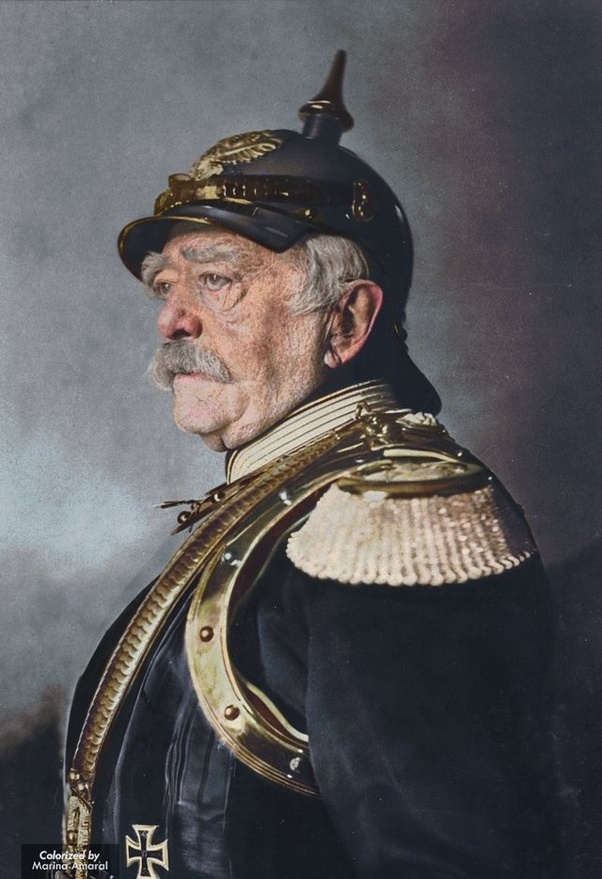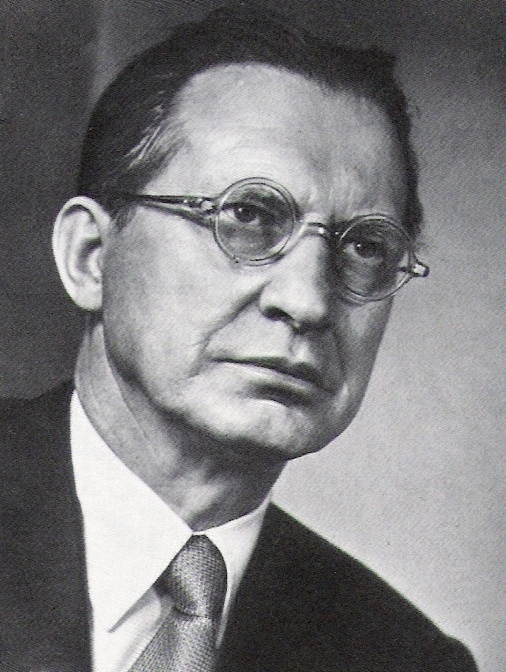Deklarata finale e Forumit të V të shoqërisë civile të Ballkanit perëndimor
European Economic and Social Committee, Beograd, 2-3 qershor 2015
FINAL DECLARATION
1. The European Economic and Social Committee (EESC), representing the economic and social components of organised civil society in the European Union (EU), has held its fifth Western Balkans Civil Society Forum with the support of the European Commission. The Forum has brought together representatives of Western Balkans civil society organisations (CSOs), EESC members, European and international socio-professional organisations, representatives of the governments of the Western Balkans, EU and international institutions.
2. The following major themes were discussed at the Forum: perspectives for the EU and the Western Balkans; increasing transparency and openness of the EU accession process; the role of civil society in fighting against corruption; youth and employment – the role of social partners in promoting economic and social integration and minority rights in the western Balkans.
The Forum participants have adopted the following declaration:
On perspectives for the EU and the Western Balkans:
The participants:
3. welcome the progress made by the countries of the region towards EU accession since the last Forum organised in Zagreb in 2012; welcome in particular the accession of Croatia to the EU on 1 July 2013 and believe that this achievement will encourage the other countries in the region to follow the same path;
4. support the particular emphasis of the European Commission (EC) put on the three pillars of rule of law, economic governance and public administration reform, as well as the conclusions of the progress reports released in October 2014, describing the progress achieved in each country of the region;
5. stress that the EU’s enlargement policy contributes to mutual benefits of peace, security and prosperity in Europe; it reinforces the EU’s political and economic strength and has a powerful transformative effect on the countries concerned;
6. point out that this year it will be twenty years since the tragic events in Srebrenica and the signing of the Dayton Agreement that ended the war in Bosnia and Herzegovina and created the status quo that we have today;
7. ask once again the Council to followup the recommendation of the European Commission to open accession negotiations with the former Yugoslav Republic of Macedonia, especially since recent events of violence in the city of Kumanovo demonstrate how fragile stability in the Western Balkans is and how necessaryit is to provide for a clear accession perspective;
8. ask the EUand the Government of the former Yugoslav Republic of Macedoniato include democratic civil societyorganisations in their efforts to solve the current political crisis in the country, by means of a structured dialogue which contributes independent and informed proposals in order to strengthen the rule of law, democracy and stability;
9. are pleased that Montenegro and Serbia made decisive steps towards EU accession this year, with the opening of new chapters for Montenegro and the opening of accession negotiations for Serbia; call upon the Commission and Council to open the first chapters in negotiations with Serbia; are encouraged by the progress made of potential candidate countries in the Stabilisation and Association Process, with the Stabilisation and Association Agreement (SAA) with Albania, the SAAin the process of being signed with Kosovo and the recent entry into force of the SAA with Bosnia and Herzegovina;
10. stress that efforts by the governments of the Western Balkans to improve regional cooperation and neighbourly relations are essential for the EU institutions to assess the progress of individual countries;
11. are concerned about the persistently difficult economic situation in the region, although slight signs of recovery can now be seen in most of the countries; once again stress the need for the political authorities to focus more on addressing fundamental reforms early in the enlargement process, in close cooperation with the economic and social partners;
12. stress the need for Western Balkans countries and the EU to ensure an effective use of EU programs supporting competiveness and promoting economic growth such as Horizon 2020 and COSME for SMEs;
13. call for the set-up of new civil society Joint Consultative Committees (JCCs) with civil society organisations in the countries in the region;
14. ask for Energy Community, which aims to expand the EU’s energy acquis to enlargement and neighbourhood countries, to be further strengthened and closely integrated into the project of Energy Union; energy should be a factor for the development and interconnectivity of the region and the citizens of the Western Balkans should be given a clear idea of the economic and environmental benefits of accession to the EU;
15. call for Western Balkans countries to be included in trans-European networks and call upon the EU and the Western Balkans to set up a transport community in order to facilitate further economic integration of the countries in the EU.
On increasing transparency and openness of the EU accession process:
16. note that in recent years, there have been a number of improvements to the transparency and inclusiveness of the accession process; however, stress that greater consistency is needed to ensure that both the EU institutions and the governments concerned adopt a transparent and inclusive approach throughout the accession process, across all policy areas and in all candidate and potential candidate countries;
17. ask for more to be done to foster an enabling environment for civil society organisations, especially since a strong civil society enhances political accountability and promotes deeper understanding of accession related reforms;
18. ask the governments in the region to involve and support on an equal footing the social partners and other civil society organisations closely in their national strategies, policies and funding towards EU accession and negotiation structures, as well as in their programming and implementation of EU-funded projects;
19. call on governments in the region to carry out regulatory impact assessments (RIA) when preparing national negotiation positions and legal harmonisation in order to identify adjustment risks; ask to engage non-state players, including the business community, trade-unions and representatives of affected social groups when carrying out RIAs;
20. ask that national parliaments to play a proactive, deliberative and supervisory role in the accession process in a timely and strategic manner;
21. advise all the countries to setup national councils for European integration that would bring high-level political authorities and key civil society organisations together on a regular basis with a view to making the process towards EU integration more transparent and publicising it more widely;
22. call on Member States, together with the EU institutions, to lead an informed debate on the political, economic and social impact of enlargement policy;
23. call on civil society Joint Consultative Committees (JCCs) between the EESC and candidate countries to attempt to fill “empty niches” which are not covered by other bodies in the negotiation process and focus on a selected number of areas; ask for better exchange of information between JCCs and the Commission, the Council and the European Parliament;
24. emphasise that freedom of expression and free media are prerequisites for establishing solid democracies and allowing a vibrant civil society to develop; stress that civil society must be vocal and take the lead in denouncing the negative developments in the region in relation to freedom of expression such as political pressure on media; support public broadcasters independenceandrecall the role that they should play in conveying reliable information on enlargement processes;
25. ask the EC to provide for a substantial increase in financial support, including from projects under the Civil Society Facility, aiming at strengthening the capacities of civil society organisations, including the social partners, promoting their participation in European CSO networking activities as well as supporting professionalism and independence of the media;
26. support the implementation and monitoring of Guidelines for EU Support to Civil Society in Enlargement Countries 2014-2020 and Guidelines for EU Support to Media Freedom and Media Integrity in Enlargement Countries, 2014-2020 in all enlargement countriesand ask for them to address the specific challenges faced by the social partners.
On the role of civil society in fighting against corruption:
The participants:
27. stress that strengthening the rule of law is a key challenge for most of the countries in the enlargement process, in particular in terms of improving the functioning and independence of the judiciary and fighting corruption and organised crime;
28. stress that corrupt practices do not negatively affect only business and investment climate, but also directly affect citizens when accessing certain public services such as education and health services;
29. welcome the new method adopted at EU level of beginning by opening Chapter 23 (Judiciary and Fundamental Rights) and Chapter 24 (Justice, Freedom and Security) in the accession negotiations; stress that this will help the negotiating countries to make necessary and sustainable efforts in these key areas;
30. stress that the actions foreseen in the anticorruption strategies and in corresponding action plans should be implemented according to the deadlines set and that an effective and functioning monitoring mechanism with the involvement of civil society should allow regular and careful monitoring of the implementation results;
31. call on countries of the region to take the necessary steps to implement the outstanding recommendations of GRECO – the Council of Europe Group of states against corruption;
32. call on the political authorities to work hand in hand with civil society organisations when introducing reforms and implementing legislation on key issues such as on handling high-level corruption cases, better supervision of public procurement procedures and on improving the legal framework for the financing of political parties; furthermore, call for countries of the region to improve the free access to information rules and their practical implementation;
33. encourage the implementation of the UN Convention against Corruption that in its article 13 states that civil society should play an active role in combating corruption;
34. call for the adoption and implementation of laws on whistle-blowing and for steps to make the system of whistle-blower protection more effective in practice;public awareness about the possibilities of reporting corruption should be raised;
35. call on civil society organisations to join actions in order to increase their pressure on the government and disseminate a harmonised message for better representativeness of civil society in policy making and implementation, as well as greater influence on policies;
36. encourage the funding of projects under the Civil Society Facility with the aim of strengthening partnerships between EU and Western Balkan organisations, including the social partners, working on the fight against corruption.
On youth and employment: the role of social partners and other civil society organisationsin promoting economic and social integration
The participants:
37. stress the common challenges that the EU and the Western Balkans are facing on unemployment, in particular regarding youth, as well as gender inequality. Participants are particularly worried by the very high level of youth unemployment in the Western Balkans countries reaching almost 50% in Serbia and 60% in Kosovo and in Bosnia and Herzegovina;
38. urge the governments and EU institutions to provide support to ensure higher employment, in particular for young people, but also for women, in the enlargement process.
39. recommend extending the EU Youth Guarantee to the EU accession states of the Western-Balkans which aims to secure a decent supply of jobs for all young people up to the age of 25, or to provide continuing education or professional apprenticeships/traineeships in the four months after the end of their studies or after they become unemployed; as a priority, the dual vocational training should be established in cooperation with the social partners. The financing of this ‘Youth Guarantee’ should be provided from the relevant EU funds;
40. share concerns over the social and economic situation in the region, with recession affecting some countries, very high unemployment rates and prevalence of informal employment, which are undermining the economy as a whole, weakening the state budget and leaving employees without any social protection;
41. are aware of the specificity of the Western Balkans region in terms of depopulation as a result of intra-regional migration and emigration towards the EU. The countries have experienced large emigration and brain drain that impact not only on the demography and society but also has consequences on the competitiveness of the region;
42. recall that social dialogue is key for the economic and social development of the Western Balkans and the EU. In the context of enlargement, candidate countries and potential candidate countries should be encouraged to consult and include social partners, in particular when reforming employment and social legislation;
43. consider of great importance strengthening social dialogue in the Western Balkans countries and encourage the EC to facilitate the access of social partners to the Instrument for Pre-accession Assistance (IPA); call on the EC to simplify access to the Instrument for Pre-accession in Rural Development (IPARD) which remains the main source of financial assistance for rural areas in the Western Balkans;
44. stress the importance of ratifying all ILO labour conventions and of implementing them, together with the eight core ILO labour conventions, effectively, and of progressing in strengthening labour and trade union rights;
45. call for the governments to comply with and guarantee compliance with labour laws, as well as to improve tripartite social dialogue.
On minority rights in the Western Balkans
The participants:
46. stress the common challenges faced by the EU and the Western Balkans countries in particular on the respect of rights and freedoms in relation to ethnic, religious, linguistic, disability and sexual orientation. In this perspective, they also highlight the vulnerability of Minorities during the current economic crisis;
47. draw attention to the Framework Convention for the Protection of National Minorities, which was drawn up within the Council of Europe and adopted by the Committee of Ministers of the Council of Europe on 10 November 1994, and is standard in all Western Balkans countries;
48. stress the urgent need for the public authorities to take stronger action, in partnership with civil society organisations, in order to better protect the rights of minorities, especially as the implementation of the existing human rights’ instruments remain limited, including those protecting the LGBTI (lesbian, gay, bisexual, transgender and intersex) people, people with disabilities as well as the implementation of Roma action plans; in this framework, the governments are encouraged to increase employability of minorities and representation in the public administration;
49. recall that for more than a thousand years, Roma people have been an integral part of European civilization. With an estimated population of 6 million in the EU and 1 million in the Western Balkans, participants ask for the respect of the rights of Roma to be defended, freely exercised and progressively realised in terms of education, healthcare, employment and housing. Participants call for the EU Member States’ National Roma Integration Strategies to specifically address the integration of Roma migrants coming from Western Balkans Countries;
50. highlight that the LGBTI community still suffers from widespread prejudice, discrimination, threat and physical attacks and ask the governments to align their legislation to the EU acquis, implement it and fund public campaigns to fight against prejudice, and protect them in their efforts to increase visibility;
51. call on the political authorities in the countries of the region to set-up strong and independent Ombudsman institutions on the model of Albania; stress that Ombudsmen can make a decisive contribution, complementing the work of civil society organisations working on fundamental rights and in particular on the protection of minorities;
52. condemn the violent incident between the police and an armed group, which took place recently in the city of Kumanovo (former Yugoslav Republic of Macedonia) and resulted in the death of 22 people.
Programme of joint activities with the EESC:
The participants:
53. call on the EESC to carry out a follow-up to this fifth Forum through its Western Balkans Follow-Up Committee and through regular contacts with the Forum participants and other interested parties;
54. express themselves in favour of a re-start of the enlargement process;
55. support initiatives aimed at drafting opinions and reports on topics of regional interest, for example on gender equality, on the role of civil society in the fight against corruption, or on minority rights;
56. encourage the establishment of new civil society Joint Consultative Committees (JCCs) with civil society organisations in the candidate countries in the region; recall that the new JCCs will complement the three existing ones, which were set-up successfully together with candidate countries in the Western Balkans; also support the view that more JCC meetings should be held in the Western Balkan countries rather than in Brussels, in order to better include local civil society organisations in the debates on enlargement policy;
57. call on the EESC to structure the dialogue with the civil society in the countries where there are no JCC in place by organising at least one meeting a year;
58. charge the EESC to transmit this final declaration to the governments of the region, the European institutions, CSOs of the Western Balkans and their partner organisations in the EU, the Regional Cooperation Council, the International Labour Organisation, and the Council of Europe.


 Libraria Shteti Web
Libraria Shteti Web









